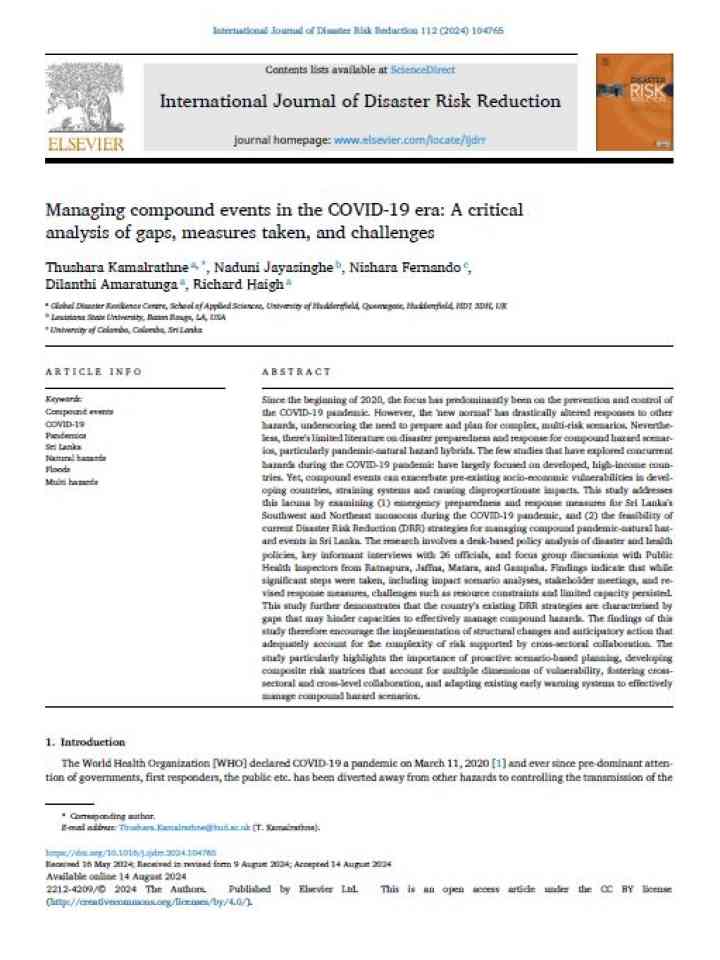Managing compound events in the COVID-19 era: A critical analysis of gaps, measures taken, and challenges
This study examines (1) emergency preparedness and response measures for Sri Lanka's Southwest and Northeast monsoons during the COVID-19 pandemic, and (2) the feasibility of current Disaster Risk Reduction (DRR) strategies for managing compound pandemic-natural hazard events in Sri Lanka. The research involves a desk-based policy analysis of disaster and health policies, key informant interviews with 26 officials, and focus group discussions with Public Health Inspectors from Ratnapura, Jaffna, Matara, and Gampaha.
Findings indicate that while significant steps were taken, including impact scenario analyses, stakeholder meetings, and revised response measures, challenges such as resource constraints and limited capacity persisted. This study further demonstrates that the country's existing DRR strategies are characterised by gaps that may hinder capacities to effectively manage compound hazards. The findings of this study therefore encourage the implementation of structural changes and anticipatory action that adequately account for the complexity of risk supported by cross-sectoral collaboration. The study particularly highlights the importance of proactive scenario-based planning, developing composite risk matrices that account for multiple dimensions of vulnerability, fostering cross-sectoral and cross-level collaboration, and adapting existing early warning systems to effectively manage compound hazard scenarios.
Explore further
